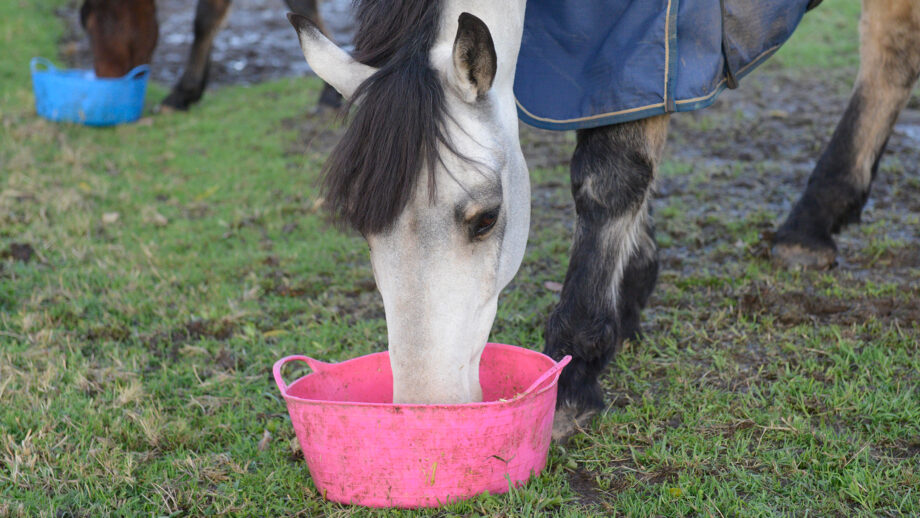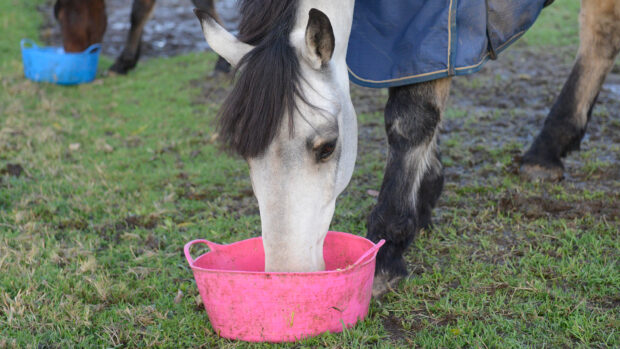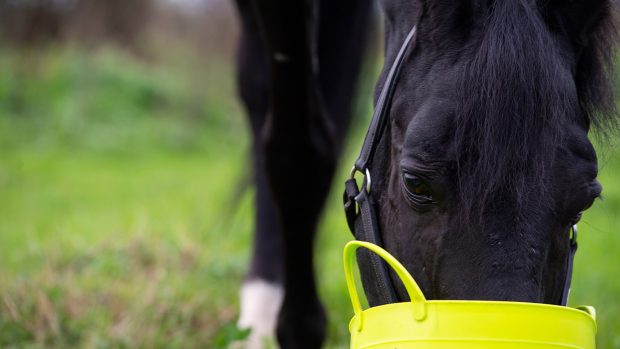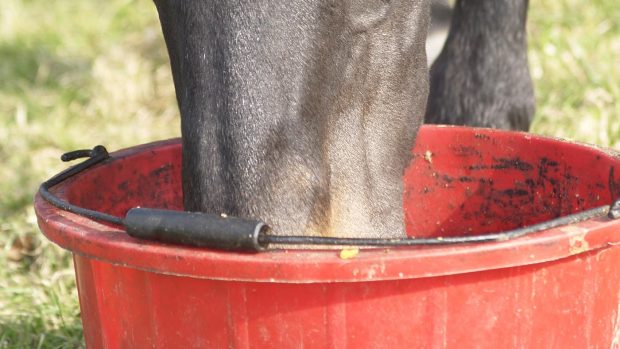Before embarking on a feeding programme to help your horse gain weight it’s imperative to establish whether your horse needs to put on weight and if so, the reasons why he’s underweight. Regular body scoring is a useful tool to help you monitor your horse’s weight and taking frequent photos can also be beneficial.
“Unfortunately, one of the biggest issues currently facing equine welfare is obesity, with research showing well over half of horses are overweight, and that’s likely to be higher still in the leisure horse market,” says Kate Hore, head nutritionist at NAF.
Discovering why your horse is underweight can be difficult, but the more you know about your horse’s current diet, his worming programme, dental history and hoof quality, as well as basic information such as his height and age, the more chance you have of identifying the issue.
“It’s important to get to the root cause of the problem so you can obtain accurate advice. Older horses are less efficient at digesting their food, a horse suffering from dental issues may be finding it uncomfortable to chew, while poor hooves and a dull coat can be an indication of gut issues,” says Katie Williams, technical and product development manager at Dengie.
Feeding a horse for weight gain should be based around the feeding principles of little and often; high fibre and forage and low starch. With a high proportion of a horse’s diet consisting of forage, it’s important to ensure the hay you’re feeding is nutritious and palatable. Early cut meadow hay is soft and leafy and more digestible while haylage or wrapped hay is more appetising than grass hay. In the summer maximise grass intake.
“Focus on what you can do. You’re going to be limited in what you can achieve if you only feed two meals a day. Invest in quality food and forage so you make every mouthful count. Digestibility converts to weight gain more readily than indigestible foods,” continues Katie.
Nicola Tyler, nutrition director at TopSpec adds: “Gone are the days when you give your horse big buckets of food, feeding less can achieve more. Horses aren’t like humans; if you feed horses more and more you exceed the capacity of the horse’s gut and then they digest food inefficiently.”
To provide extra calories, include oil in your horse’s diet, but remember to supplement with vitamin E if you’re feeding a high oil diet.
“In terms of energy supplied, different sources of oil are basically the same. It is the types of fatty acids that differentiate oils and determines their quality. Omega 3 have anti-inflammatory properties compared to Omega 6 which are more pro-inflammatory – however, it is important to consider that both omega 3 and omega 6 are essential and so have to be supplied in the diet. Linseed is a great source of omega 3 and is non-marine origin,” says Katie.
Article continues below…
You might also be interested in:

15 feeds to help your horse gain weight and condition

Feeding a good doer during the summer

Subscribe to Horse & Hound magazine today – and enjoy unlimited website access all year round
Feeding a horse for weight gain should be done gradually and a horse should have access to fresh water to ensure he is well hydrated and a salt lick at all times.
“It’s impossible to say how long it will take the horse to gain weight as it is dependent on factors such as how far underweight they are, their diet, the time of year and their workload. However, for safe weight gain in the acutely underweight horse think of months rather than weeks,” concludes Kate.
Horse & Hound magazine, out every Thursday, is packed with all the latest news and reports, as well as interviews, specials, nostalgia, vet and training advice. Find how you can enjoy the magazine delivered to your door every week, plus options to upgrade your subscription to access our online service that brings you breaking news and reports as well as other benefits.




